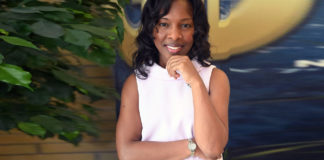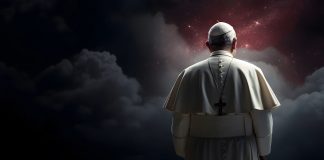Reacting to the worst news
In a conversation with Dr. Shelly-Ann Bowen, we discussed her research on what determines whether someone will be active or passive in the face of catastrophic events—fires, floods, or a cancer diagnosis. Social injustice, a lack of self-awareness, and even an immature understanding of faith paralyse action. But there are ways to make positive changes.
Lies: the anatomy of a social pathology
"You? Fat? No way!" "With all due respect, officer, that wasn't a red light!" Every day, billions of lies leave the mouths of billions of people. Lying is a moral pollution that we declare harmful, but seem to believe is indispensable in life.
Don’t say I haven’t told you so…
During my adolescence, a Swiss author, Erich von Daniken, made waves with his theories about extra-terrestrial influences on early mankind. His most important book was called Memories of the Future. Of course, his ideas have no support today, but the idiom remains: memories of the future. Something from the past says something about what is to come.
Before ending a relationship
What do you do when a relationship no longer feels right or doesn’t meet your expectations? Do you try to fix it, or are you more inclined to walk away? Here are a few things worth considering before making the decision to end a relationship.
Staring loss in the eye | Lessons from life’s disasters
In the aftermath of Hurricane Harvey, Max Lucado wrote an article summarising the spiritual lessons we can learn from an event that the news described as a "once in a thousand year flood".
Understanding breast cancer
Breast cancer claims the lives of more women than most other forms of cancer. In the United States, the incidence of this disease in women is about one in eight, which is nearly 13 per cent, while in Australia and New Zealand it’s slightly lower at one in nine (11 per cent).
The primary message
How do we discover the intention of the biblical author—and how important is it in interpreting the Bible correctly?
The shadow of the throne
In the heart of the most powerful man in Judea, a greater fear than any other was born: the fear of losing control. Herod's story could be our story.
The goal that appears when you reach it
I like to look back. When I am climbing a mountain, it is an excuse to rest. But I also do it for another reason—to see how far I have climbed.
The perfect Christmas present
Doing things the way you've always done them is the most convenient choice. I realized this on the eve of my birthday, when it became clear to me that snowballing into the same pattern of celebrations begins to gradually, but surely, lose its flavour.
Our inevitable failures
Economic capitalism has a psychological twin, one that is not as bold and brash as its profit-obsessed counterpart, but if we look into the subtle details of our interior universe we find it hidden there.
Parenting school: the counsellor and consultant phases
This article is the third and last in the "Parenting School" series. The first two parts were published in the May and June 2020 issues of Semnele Timpului, the Romanian version of the ST Network.
What happens if the pope dies?
Images of Pope Francis have recently been released by the Vatican for the first time after he was admitted to hospital in a critical condition for pneumonia following a complex lung infection. Given his advanced age and frailty, many have wondered whether the pope is close to death.
How (and why) to read through the Bible every year
More than a collection of information, beyond its role as a guide, the Bible is where we have a redemptive encounter with the One who holds the keys to eternal life.
A generation that breathes anxiety
“You are always afraid people will judge you or know your weakness. It’s like being totally naked in front of a huge crowd,” says Bruno Feldeisen about the hidden struggle he had with anxiety.


























